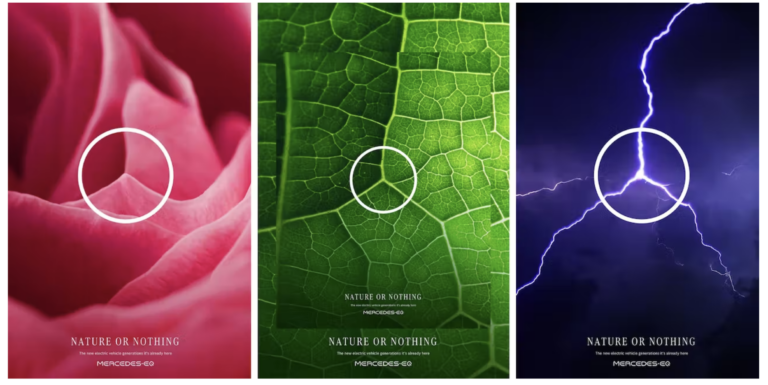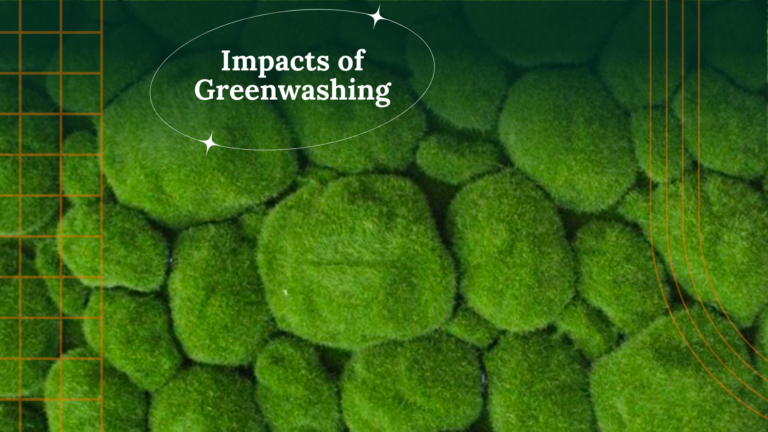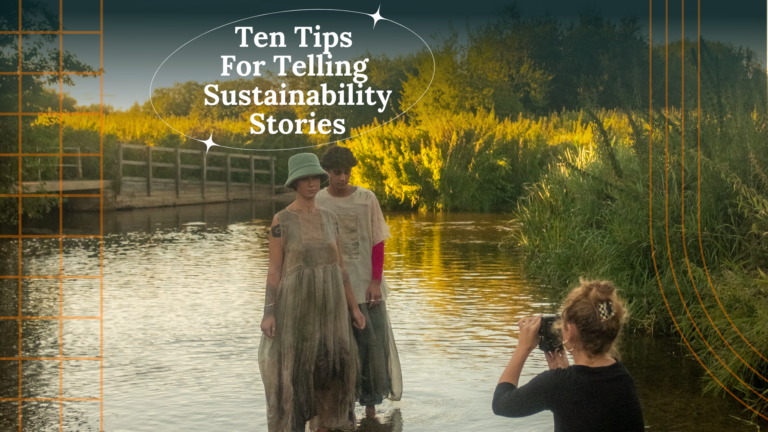Surfing has exploded in popularity in recent times, with around 50 million people now riding the waves worldwide. Since its Olympic debut in 2020, it has evolved into more than just a sport—it’s a global movement intertwined with environmental consciousness.

(Floom Creative)
But surfing isn’t just a sport; it’s a lifestyle deeply intertwined with sustainability. When surfers paddle out, they’re not just chasing waves—they’re forging a unique bond with nature.
This connection often translates into a profound commitment to preserving the environment that gives them so much joy.
With environmental consciousness on the rise, surfers are perfectly poised to lead the charge in sustainable practices.
The positive impacts of surfing:
Surfing has a unique role in promoting sustainability, starting with its deep connection to nature. Every surfer feels this bond with the ocean, which often drives a strong commitment to environmental preservation. This connection isn’t just personal—it has the power to influence wider communities.
Surfers are trendsetters, and with this influence, they can push sustainable practices into the mainstream. The diverse and inclusive nature of surfing communities makes them fertile ground for spreading eco-friendly habits.
Take big-wave surfing as an example. The shift from tow-surfing to traditional paddling isn’t just about honouring tradition—it’s a move towards more sustainable surfing practices. This trend reflects a growing awareness within the sport, highlighting how surfing can evolve in harmony with environmental concerns.
https://www.surfer.com/news/brave-new-coral
Surfers also play a crucial role in ocean stewardship and citizen science. They are often the first to notice changes in marine environments, making them essential allies in the fight against climate change.
Beyond their environmental contributions, surfing communities foster stronger intra-family relationships, greater community cohesion, and healthier lifestyles.
Economically, surfing is a powerhouse. In 2013, it contributed an estimated £5 billion to the UK economy alone! This impact extends beyond the water, boosting local economies, increasing property values, and providing much-needed employment in rural areas. The ripple effects include improved infrastructure and public services, showing that surfing can benefit not just the environment, but society at large.
Ways to surf sustainably
Despite its benefits, surfing can also have environmental impacts. From excessive travel to synthetic materials in surf gear, there are areas for improvement.
Here are practical tips to mitigate these impacts and surf more sustainably:
Transport:
- Carpool: Sharing rides with fellow surfers not only reduces emissions but also cuts down on traffic congestion and fuel consumption. It’s a win-win for both the environment and your wallet!
- Fuel-Efficient Vehicles: If car travel is necessary, opting for vehicles with better fuel efficiency, which can significantly lower your carbon footprint. Choose hybrid or electric options if possible.
- Alternative Travel: For shorter trips to the beach, consider cycling or using public transport. These options are not only eco-friendly but also offer a great way to enjoy the outdoors.
- Carbon Offsetting: When air travel is unavoidable, look into carbon offset programmes. These initiatives help counterbalance the emissions from your flights by supporting projects that reduce greenhouse gases. Terrapass and Atmosfair are great options for offsetting your emissions.
https://www.motor1.com/news/398212/vw-electric-bus-made-germany
Equipment:
- Sustainable Boards: Select surfboards made from eco-friendly materials such as recycled foam or bio-resins. These alternatives are designed to minimise environmental impact compared to traditional materials.
- Maintain Gear: Regular maintenance and timely repairs can extend the life of your surfboards and wetsuits. This practice reduces the need for frequent replacements and helps cut down on waste.
- Second-Hand Options: Purchasing pre-owned surfboards, wetsuits, and accessories not only saves money but also reduces the demand for new products. Give quality gear a second life and keep it out of landfills.
- Eco-Friendly Wax: Opt for surf wax made from natural, biodegradable ingredients. Traditional waxes often contain petrochemicals, which can harm marine environments.
Waste:
- Reduce Plastics: Cut down on single-use plastics by investing in reusable items like water bottles, coffee cups, and food containers. This simple change can greatly reduce the amount of plastic waste you produce.
- Proper Disposal: Ensure that old or damaged surf gear is disposed of or recycled correctly. Many surf shops offer recycling programmes for broken boards and worn-out wetsuits.
- Beach Clean-Ups: Get involved in or organise beach clean-ups to help remove litter and waste from shorelines. These activities not only benefit the environment but also foster a sense of community among surfers.
- Reusable Bags: Bring your own reusable bags to the beach to avoid relying on single-use options. This helps reduce plastic waste and keeps the beach cleaner for everyone.
https://www.wetsuitcentre.co.uk/wetsuit-blog/post/buying-second-hand-surfboard
How can influencers have a positive impact?
Influential figures in the surfing community have a unique platform to drive meaningful change. Here’s how some key figures are shaping a sustainable future for the sport:
David Rastovich:
Surfer, eco-warrior, and all round hippie: David Rastovich has been a spearhead of environmentalism in surfing. Early in his career, Rastovich transitioned from competitive surfing to focus on protecting marine life, particularly whales and dolphins. He co-founded Surfers for Cetaceans, an organisation dedicated to ocean conservation, and has become a prominent advocate for sustainable practices within the surfing community.
Beyond his environmental work, Rastovich embodies an eco-conscious lifestyle, often described as a “free-spirited” approach to life. His influence has made him a respected figure both in and out of the water, inspiring many to adopt a more sustainable way of living. Through his activism and commitment, Rastovich continues to lead by example, showing that surfers can be powerful advocates for the planet.
Take a glimpse into Rastovich’s outlook and life here:
The Way It Should Be – Where We Live feat Dave Rastovich
Surfers Against Sewage (SAS):
Surfers Against Sewage is a UK-based environmental charity focused on protecting oceans, waves, beaches, and wildlife. Founded in 1990, the organisation initially campaigned against sewage pollution but has since expanded its mission to address broader issues like plastic pollution, climate change, and water quality. SAS is known for mobilising coastal communities and advocating for policy changes to safeguard marine environments.
The charity engages in grassroots activism, education, and scientific research to drive change. Through initiatives like beach clean-ups and campaigns for cleaner seas, SAS empowers individuals to take action in protecting the environment. Their work has made them a leading voice in marine conservation, with a strong community of supporters dedicated to preserving the UK’s coastlines.
https://www.sas.org.uk/about-us/
Misaki Takabayashi:
In 2014, marine scientist Misaki Takabayashi noticed something alarming while bodyboarding in Hawaii. As she paddled for a wave, she saw something unusual beneath the water—fluorescent white coral resembling ghostly figures. With over 20 years of experience studying Hawaii’s reefs, Takabayashi knew immediately that this wasn’t a good sign. Healthy corals usually have vibrant colours but these corals were stark white, a clear sign of “bleaching” (as shown below).
This finding by Takabayashi has led to scientists and surfers collaborating to plant resilient coral species that can better withstand rising ocean temperatures. This initiative aims to protect these vital marine habitats and the countless species they support.
The project reflects a growing movement within the surfing community to actively engage in ocean conservation.
By combining scientific innovation with grassroots efforts, this collaboration is paving the way for more sustainable interactions with our oceans, ensuring that future generations can continue to enjoy thriving coral reefs.
How can you make your surf gear more sustainable?
Embracing eco-friendly choices in surfing gear can make a significant impact on the environment. Here are some innovative options:
- Patagonia’s Yulex: These wetsuits use natural rubber sourced from renewable plantations, reducing reliance on petroleum-based materials and offering a more sustainable alternative for surfers.
- Flexi-Hex Board Protection: Flexi-Hex provides eco-friendly surfboard protection with its innovative, recyclable packaging that reduces plastic waste while ensuring boards are well-protected during transport.
- Radical Wax: Radical Wax, They believe in two simple but powerful ideas: surfers deserve better, and the future of our oceans depends on the choices we make today. That’s why they created a high-performance, sustainable wax—one that grips hard without leaving a toxic trace. No petrochemicals, no compromises—just pure, planet-friendly performance.
- Wooden Boards: Wooden surfboards, often crafted from sustainable wood sources, offer a biodegradable alternative to traditional foam boards, reducing plastic waste and promoting eco-friendly materials.
- Second-Hand Shops: Purchasing surfboards and gear from second-hand shops not only extends the life of equipment but also cuts down on waste and reduces the demand for new, resource-intensive products.
- Recycling Boards: Recycle board programmes provide a way to properly dispose of or repurpose old surfboards, ensuring that materials are reused or recycled instead of ending up in landfills. Check out this article on great ways to do so here.
As surfing’s global presence grows, so does its potential to champion sustainability. By making eco-friendly choices and engaging in conservation efforts, surfers can ensure our oceans remain vibrant for future generations.
Let’s ride the wave of positive change and commit to protecting our precious marine environments. Together, we can make a significant difference and continue to enjoy the beauty of surfing for years to come.
Floom Creative | B Corp Certified
We specialise in creating narratives for brands, nonprofits and charities that have their values rooted in environmental and ethical consciousness. By communicating your vision through visual sustainable storytelling, we can help your brand to flourish.
Let’s talk! We’d love to help you with your sustainable storytelling. Contact us now.
Check out our Blog HERE
Follow us on socials:
References:
https://www.nature.com/articles/s44183-023-00014-w
https://www.sas.org.uk/wp-content/uploads/2022/12/SAS-sustainable-guide-to-surfing-2011.pdf




















